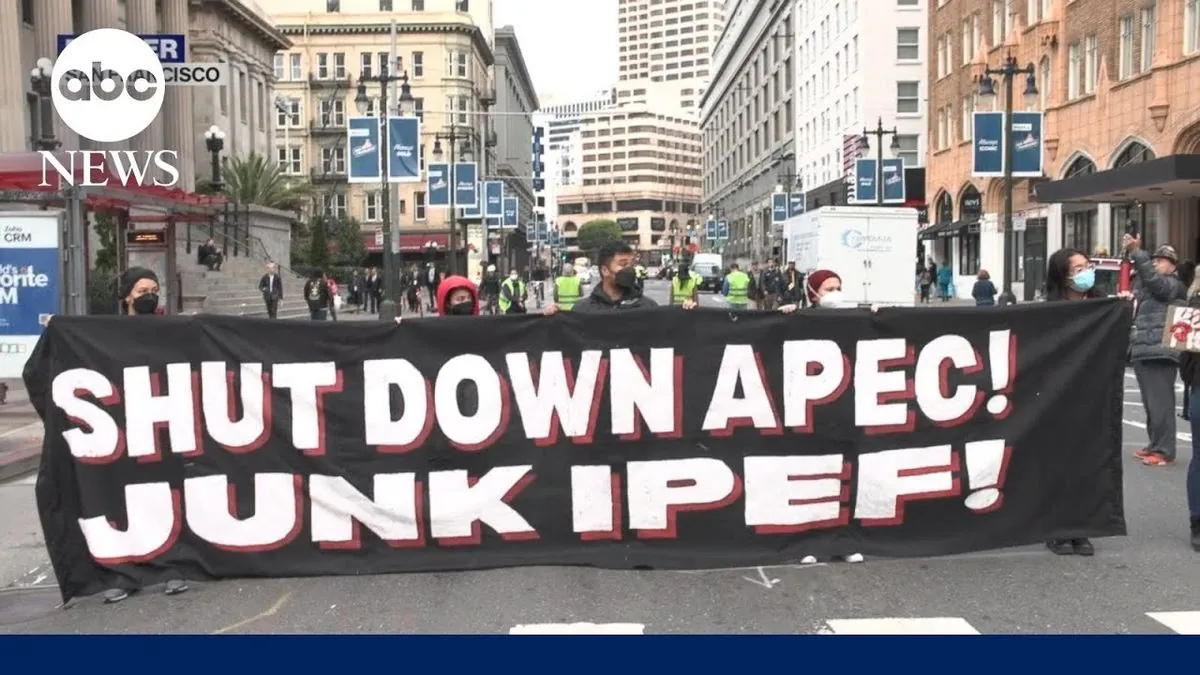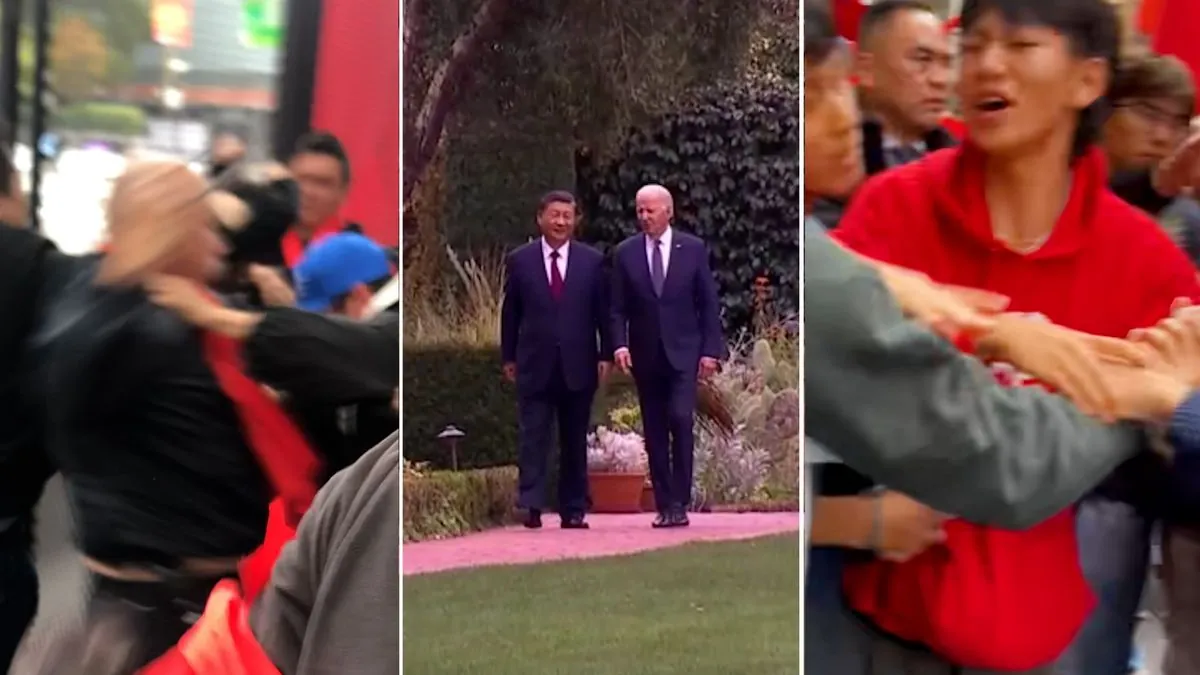China's Diaspora Control: Violence and Diplomacy at APEC Summit
Investigation reveals Chinese involvement in APEC summit violence. Pro-CCP groups instigated aggression, with diplomatic support and organized participation, raising concerns about cross-border influence.

Ten months ago, San Francisco hosted the Asia-Pacific Economic Cooperation (APEC) summit, marking its third time as the venue for this significant international event. The gathering, which brings together 21 member economies, including China and the United States, became a focal point for tensions between pro-Chinese Communist Party (CCP) activists and their opponents.
A comprehensive investigation by The Washington Post has uncovered a complex web of organized violence, diplomatic involvement, and cross-border influence during Xi Jinping's visit to the summit. The findings, based on extensive photo and video analysis, interviews, and various reports, paint a concerning picture of China's efforts to control its diaspora abroad.
The most alarming revelation is the orchestrated nature of the violence. While aggression was observed on both sides, the investigation found that pro-CCP activists, particularly coordinated groups of young men, were responsible for initiating the most extreme incidents. This organized approach raises questions about the extent of China's influence beyond its borders.

Further evidence of official involvement came to light through WeChat group messages, which revealed that the Chinese Consulate in Los Angeles provided financial incentives for supporters to participate in the protests. At least 35 pro-CCP Chinese diaspora groups were identified at the summit demonstrations, highlighting the scale of the organized presence.
The investigation also uncovered the direct involvement of Chinese diplomats from the Los Angeles and San Francisco consulates. Video evidence shows at least four diplomats among the pro-CCP protesters, sometimes interacting with aggressive individuals during the four-day protest period from November 14-17, 2023.
"Members of Chinese communities who traveled to San Francisco to welcome Xi were the ones subject to multiple incidents of provocations and violence."
This statement from the Chinese Embassy in Washington attempts to shift the narrative, claiming that their supporters were the victims rather than the instigators of violence. However, the investigation's findings contradict this assertion.
In a move that blurs the lines between diplomacy and security operations, Chinese diplomats reportedly hired at least 60 private security guards to "protect" Chinese diaspora groups gathered to welcome Xi Jinping. This action raises questions about the appropriate role of foreign diplomats in managing crowds on U.S. soil.
The severity of the incidents has not gone unnoticed by U.S. authorities. The Federal Bureau of Investigation (FBI), an agency with over a century of history in law enforcement, has launched an investigation into the violence that occurred during the APEC summit.
These events highlight the growing concern over cross-border repression and the challenges faced by host countries in managing foreign influence. As the Chinese diaspora, estimated at over 60 million people worldwide, continues to grow, the implications of such incidents extend far beyond a single summit.
The APEC summit, originally established to support sustainable economic growth and prosperity in the Asia-Pacific region, has inadvertently become a stage for displaying the complex and often tense relationship between China and the United States. As this relationship continues to evolve, incidents like those in San Francisco serve as a stark reminder of the delicate balance required in international diplomacy and the protection of individual rights.


































